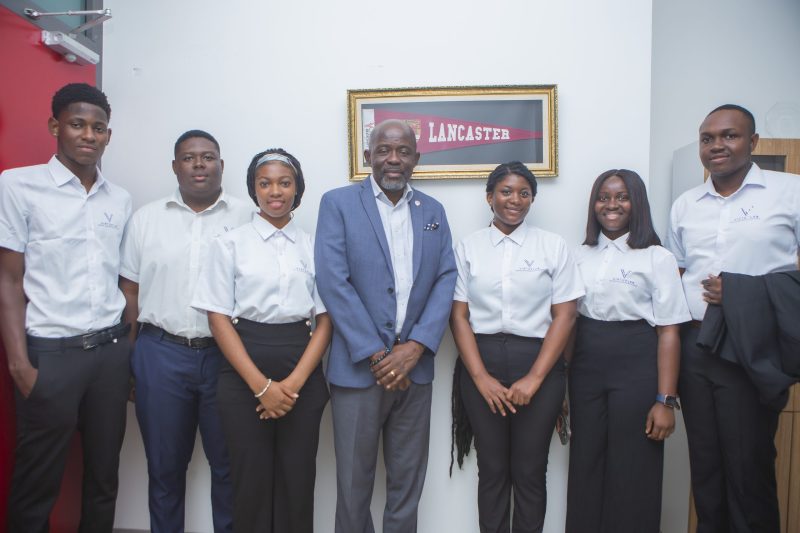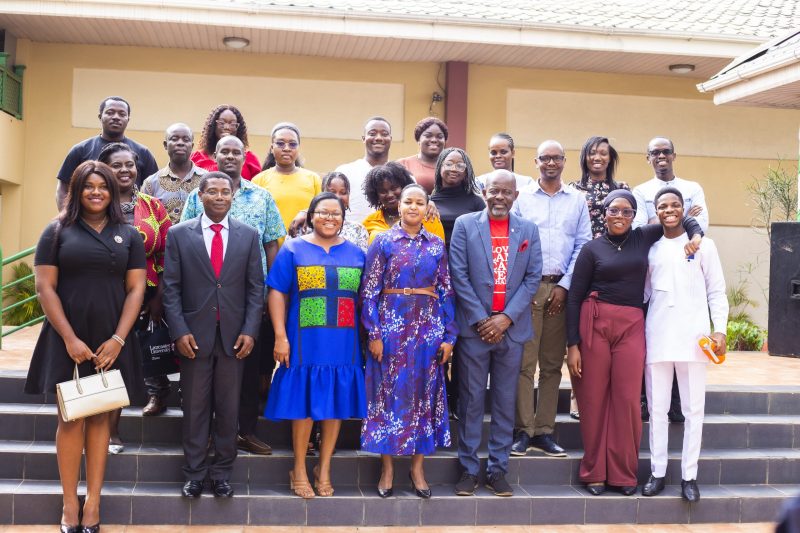Bridging the gap between business and academia in West Africa, with help from Lancaster University
The ‘Valley of Death’ is what Professor Lawrence Ezemonye, the Deputy Vice Chancellor of the University of Benin in Nigeria, calls the disconnect between industry and universities in his country.
“It is the valley of unemployment, the valley of unemployability, the valley of no new products,” he says.
Dr Kofi Addo, the head Trade and Investment for the Ghanian High Commission to the UK, agrees.
“As a nation we have to grow, which means we have to grow the SMEs (small and medium sized enterprises) which are critical masses of the society. The challenge is that the SMEs have been doing things on their own, while the research institutions have been doing things on their own. We need to bridge this gap.”
The two men were in Lancaster University alongside 70 other academics, entrepreneurs and government representatives for a two day international forum about ‘Connecting Research Challenges and Funding with Business Opportunities in Africa.’
Award winning model of ecoinnovation
Lancaster University has developed an award winning model of ecoinnovation where academics and research students work with industry to develop innovative services and products with an environmental benefit. The Lancaster Environment Centre also invites SMEs to locate staff within the university, where they can mix with academics on a daily basis.
“Where we are outstanding is with our interaction with SMEs,” Professor Mark E Smith, Vice Chancellor of Lancaster University told the delegates. “In the UK most jobs are now created by SMEs. In fact 60% of our research is in collaboration with business and other non academic partners.”
“The idea of the Forum is to have a discussion about how the Lancaster Environment Centre ecoinnovation model can be adopted or adapted for the West African Market,” explained Dr Akan Odon, Africa Strategic Advisor for the Lancaster Environment Centre (LEC).
Adapting ecoinnovation for West Africa
“The conference is extremely timely,” said Dr Rose Emma Mamaa Entsua-Mensah, Deputy Director General of the Council for Scientific and Industrial Research in Ghana.
“Ecoinnovation is new in Ghana but I think it is very important. For instance we have a power crisis in Ghana, we should be able to use solar to counteract that crisis and I think some of the eco innovative solutions here are to do just that.
“Also we have never seen waste as wealth so coming here is a good opportunity for us to learn from Lancaster University to see how to turn waste into wealth.”
“Lancaster University is the jewel in the crown where ecoinnovation is discussed,” said Professor Ezemonye. “The University of Benin realised the problems associated with the valley of death – this disconnect between academia and industry – and we found Lancaster University is a perfect fit to collaborate with in this area of ecoinnovation and to fight the Valley of Death.”
“If we can learn from it we will be able to develop something that is peculiar to our own environment and come up with something good,” said Beatrice Danladi, Deputy Head of Industry, Trade and Investment at the Nigerian High Commission to the UK.
The Forum also heard how ecoinnovation can encourage more young people to study science, which has declined in popularity amongst African youth, and help to improve the employment prospects for African graduates.
Accessing funding for research
The second day of the forum focussed on research, looking at potential areas of collaboration, and where to find research funding, a major issue for African universities.
“There is £1.5 billion about to be liberated by the British government to support scientific research into solutions to global problems and the core of that is partnership with people outside the UK,” said Professor Kirk Semple, Director of International Engagement at the Lancaster Environment Centre (LEC). “We have chosen to work with partners that we have in Africa.”
Mr Boris Atanasov, the director of Greenlight Projects Limited Mozambique, is one of these partners who came to the Forum, keen to learn more about Lancaster’s ecoinnovation model after getting involved in a recent LEC led co-application exercise for a bioenergy grant call for Africa.
Also present at the forum were Dr Patrick Cline, Director of the Africa Institute of Sanitation and Waste Managerment, and Dr Christopher Emokaro, Senior Lecturer in Agricultural Economics and External Services at the University of Benin.
Next steps
Following on from the Forum, Lancaster University is working with the University of Benin to develop a more detailed ‘African’ model of eco-innovation.
“Another meeting is planned in November, at Lancaster University’s Ghana campus,” said Professor Semple. “We will get all the right people in the room, including funders, to discuss both research collaboration and ecoinnovation and to move this forward.”
Source : http://www.lancaster.ac.uk




